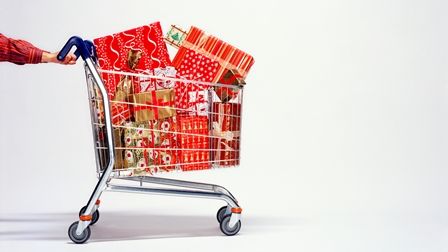
South Africans predicted to spend R224bn this festive season
According to the results from the sixth annual Summer Spending Survey by short-term lender Wonga, South Africans are expected to spend an estimated R224 billion over this year’s festive season.
Data collected from over 12,000 respondents this year reflects that there is a 4% decrease year-on-year in predicted average festive spend, coming in at R5 707 compared to R5 968 per person in 2022. This is the second year of festive spend shrinkage and is down by R619 per person in 2021.
The percentage of monthly earnings vs festive spend declines through each income band, coming in at less than 25% for those earning more than R50 000 per month. For those earning up to R2 999, festive spending will take up to as much as 188% of their monthly earnings.
Food and drink make up over a third of expenses with money and vouchers top of the gifting wish list
This year’s statistics show that food and beverages will account for over 33% of people’s festive season spend, with an average spend of R1 907 per person vs. R2 235 in 2022. This is a clear indication of the growing cost of living crisis, with households needing to spread their budgets to pay for essentials and cover debt.
Gifting will make up 16% of the festive budget, with money and shopping vouchers being the most popular (68%). Interestingly, grocery vouchers make up 12% of the wish list.
“There is a growing awareness amongst South Africans about prioritising necessities over luxuries,” notes James Williams, Head of Marketing at Wonga. “The responses we received this year have confirmed the shift in consumer preferences and priorities.”
Travel plans
This year saw the lowest proportion (21%) of people saying they will be traveling during the festive period since the survey was first run in 2018.
Of the 79% not travelling this year, nearly half say they simply cannot afford it. This is likely due to the impact of the steep rise in the cost of fuel which has impacted personal and public transport costs, as well as the high cost of living. Some 26% of respondents cite the reason for not travelling is that they have to work throughout the holidays.
Less than 2% of respondents indicated that they would travel outside of the country this year. This is down from 5% in 2019 and 4% in 2021. This may be due to affordability constraints, especially considering the current exchange rate of the Rand to major foreign currencies.
For the second year running, Gauteng comes in as the most popular festive season destination, with 27% respondents travelling to or within the province. This is followed by 18% saying they will spend their holidays in the Western and 16% in KwaZulu Natal.
Less reliance on savings
Only 37% of people will use their savings to see themselves through the festive season. This has decreased from 40% in 2022.
Some 44% of respondents say they are expecting to receive a year-end bonus this year with over two thirds of them saying they will use their bonus to fund their additional festive expenses. They will outspend their no bonus counterparts by an average R730 this festive season.
The growing reliance on credit cards and loans to fund festive expenses has risen from 27% to 32% this year – indicating the impact of inflation on consumers’ pockets.
Shopping trends
Online festive shopping, typically a steadfast trend, has plateaued at 26%.
The majority of people will shop in store and 10% will visit markets to buy gifts for their loved ones. Around 6% of respondents indicated that they would make their own gifts at home.
How the holidays will be celebrated
A braai at home celebrating with family and friends is the most popular way that South Africans will be celebrating the festive period. Some (22%) will visit the beach and 16% will be eating out at restaurants and cafes, which is down from 19% in 2022.
The spirit of Ubuntu is still strong with 11% reporting that they will be donating money or volunteering their time to charity.
South Africans are feeling positive about 2024
“It is encouraging to see from our survey that well over half of the respondents are feeling optimistic and excited for the year ahead,” reports Williams. “Almost a third, however, are feeling anxious or scared about what 2024 may bring, which is perhaps due to a particularly challenging time for many households this past year.”
“This year’s survey shows that South Africans are tightening their belts with some relying on their year-end bonuses and others relying on credit to cover the extra expense over the festive period,” he concludes..
“There is an expected decrease in predicted spend this year, confirming the serious impact of the rising cost of living and inflation on household budgets.”
News Category
- International retailers
- On the move
- Awards and achievements
- Legislation
- Wine and liquor
- Africa
- Going green
- Supplier news
- Research tools
- Retailer trading results
- Supply chain
- Innovation and technology
- Economic factors
- Crime and security
- Store Openings
- Marketing and Promotions
- Social Responsibility
- Brand Press Office
Related Articles

Empowering South African households through gro...

SPAR shares practical tips to beat food inflation

South African motorists could be paying up to R...

Big VAT changes on the cards


